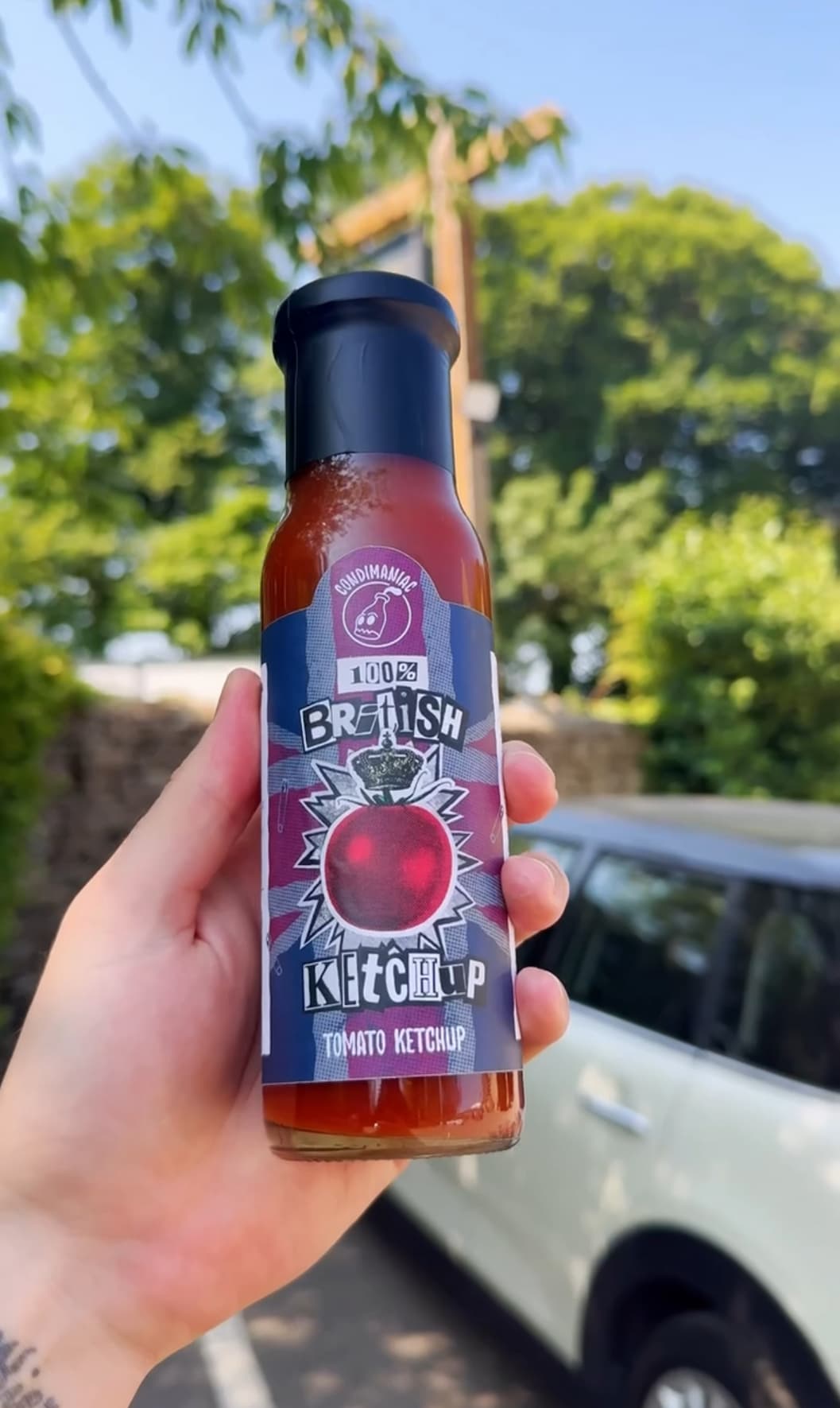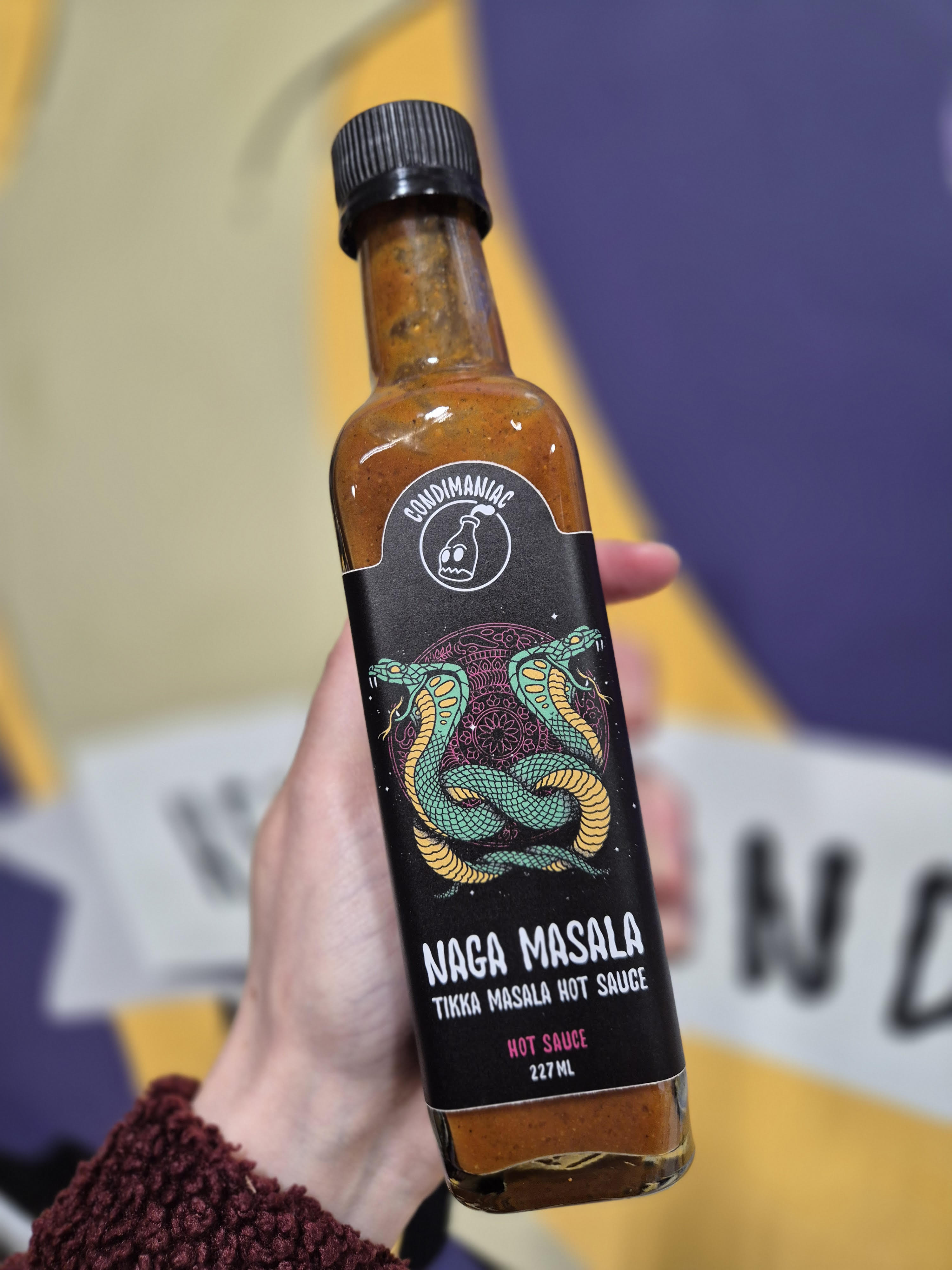Our 100% British Ketchup has caused quite the stir. The series has had millions of view online, we sold out of the first proper batch in 2 days and just earlier this week I was interviewed on Radio 4 about it all 😅
We're very thankful. It's been amazing for our business. It's also caused me to do a lot of thinking about the whole concept and we've learned lots along the way.
So in this piece, I thought I'd do a bit of a deep dive into some of the pros and cons of producing the first 100% British Ketchup (at scale anyway).
Pro: It's been fun and people really want to buy it.
 This is a definite plus 😂 I'll never take for granted when people want to spend their hard earned cash with us. It's awesome.
This is a definite plus 😂 I'll never take for granted when people want to spend their hard earned cash with us. It's awesome.
Con: It's a massive faff.

Because no one produces tomato puree un the UK we've had to go to great lengths to get the right consistency and flavour.
This has made the whole thing rather time consuming and therefore rather expensive. Which people love to complain about 😂
What some people don't seem to understand is that in order for a product to be cheap it needs to be mass produced. And for that mass production to take place a country needs to develop infrastructure to do it.
In the case of tomato puree most of the good stuff comes from Italy. They have loads of tomatoes and I assume loads of massive machines to process tons and tons of it at one time.
So it's all well and good wanting to buy British, but if you're going to, you need to be prepared to pay for it too 🙏
Pro: Buying British supports farmers and improves food security.

Farmers get a pretty raw deal. Mostly because they're exploited by large supermarkets with big buying power. Forcing them to sell their produce for next to no profit. That's exactly why us at Condimaniac don't really care about being in the supermarkets. We're too expensive for them and that's fine. I'd rather sell our stuff online than put money into the pockets of a massive corporation's shareholders 💰
The tomatoes that go into the ketchup come from the Isle of Wight. They grow them there, process them into a passata and we buy it.
That way the money we pay is going directly into the pocket of that farm. So buying British IS good for supporting them and the more we support local food producers, the less we have to rely on food being shipped in.
I personally think there's nothing wrong with importing food if it's good stuff. But a mixture of climate change and wars around the world has made our international supply much less reliable recently. Just ask our poor wholesaler 😂
Con: British doesn't always mean best.

There's a lot of things we do really really well in Britain. Pints of ale, pies, sausages, bread. Oh and the CHEESE. Love a bit of cheddar.
However if you force yourself to ONLY buy British then it's just a fact that some stuff will be less good and other stuff just won't be available.
I mean try making a Pina Colada from British pineapples. I'd be impressed.
That's something we've had to contend with on this product. We always aim to buy the BEST ingredients. Wherever they come from. We could make a more delicious ketchup with Italian tomato puree, also being able to use spices that only grow in hot climates.
That's exactly why, whilst we think this is a great thing to do, and we're proud of it. We're not going to make our whole range 100% British. If we did, there would only be about 2 products left 😅
So I think it's always important to ask yourself what the goal is. We want to make really delicious and interesting condiments. So it makes sense for us to use ingredients from all over the world 🙏
Pro: It's good for the environment.

I took that picture on the way home to Suffolk and boy was it beautiful.
Which leads me onto this last point. It's pretty self explanatory. If you buy stuff that's closer, it tends to be better for the planet. Not always, but usually 🌎
That's it from me. I hope this has been interesting and if not at least slightly entertaining.
Have a wonderful rest of your day.
Kier



Leave a comment
All comments are moderated before being published.
This site is protected by hCaptcha and the hCaptcha Privacy Policy and Terms of Service apply.